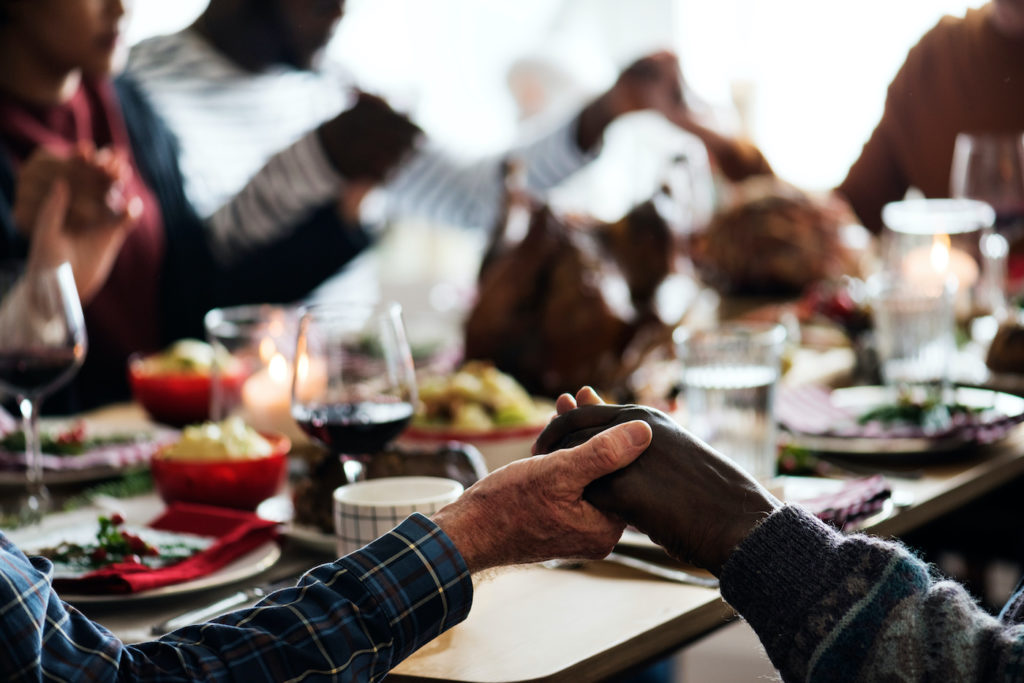For all its promise of rest and recovery, summer is just as often a time of transition and upheaval, with students embarking on new adventures far from home, workers seeking fresh opportunities, or tourists exploring distant and unfamiliar places. Having just completed a summer move of my own, relocating nearly 1,000 miles from Birmingham, AL to Princeton, NJ, I find myself turning again to the fundamental yet easily neglected question of the meaning of “home.”
Our culture tends to conceive of the home in material terms, and the process of moving generates an endless list of practical questions. Where should we put the television? How many books will fit here? And what can we do about the kitchen backsplash? It’s no accident that the name of our most popular home television show—House Hunters—encourages us to think of homes as products to be coveted, consumed, and conquered.
But it’s worth challenging this reductive view and reflecting more deeply on the nature and purpose of home, because home is where our life unfolds. Home is where we learn how to be ourselves and how to relate to others, prior to approaching big questions about politics and law, business and economics, or war and peace. Because our homes play such a powerful and profound part in shaping our lives and preparing us to engage the broader culture, Public Discourse authors have explored this question from a range of perspectives.
First, we might ask what it would mean to think theologically about home. Jennifer S. Bryson explores just this question in her review of Carrie Gress and Noelle Mering’s book, Theology of Home II. For Christians, home is not just a commodity, but a church of its own, or what Saint John Paul II referred to as a “domestic church.” Home is not just a place to rest our body, but to nurture our souls and, in the words of the book’s authors, to “prepare our families for Heaven.” The idea of homemaking as a purposeful art that enables personal and spiritual growth is given practical expression by David Dollahite, Loren D. Marks, and Hal Boyd, who offer a number of best practices for religious parenting in the home. After all, home is where we partake in the innumerable rituals that help us share in something beyond ourselves, and from a religious perspective this might mean daily prayer or reading of scripture.
Start your day with Public Discourse
Sign up and get our daily essays sent straight to your inbox.During the pandemic, we became unexpectedly—and perhaps uncomfortably—familiar with our homes. As an antidote to the notion of home as limiting or alienating, two Public Discourse authors associate the home with opportunity, enrichment, and belonging. First, Joshua Pauling offers a compelling vision of the home as the “engine of education and economics,” with the value of homeschooling and home-centered production (skills, trades, and hobbies) coming into clearer view amid quarantines and lockdowns. Second, Nicole Penn highlights the importance of “finding a home in the world through the life-giving nurture of the bounded and the particular.” With reference to two recent books on the value of limits, she urges us to step back from the transience of the modern world by attending to our own small corner in a way that enriches our existence, just as an initially unpromising garden might blossom into something beautiful.
Home grounds our identity, roots us in the world, and therefore provides the foundation for our journey through life, no matter how far away our explorations might take us. Luis Tellez, President of the Witherspoon Institute, reflects on his childhood experiences in his hometown of Caborca in the Sonoran Desert. As he sees it, our homes and our early years are deeply formative, but not the whole story: we can overcome hardship, and choose always to approach others with care and humility. Finally, Brian Jones draws on ancient Greek political theory to explore the idea that travel helps us to see our own homes with greater insight and clarity. Paradoxically, we are better able to appreciate the beauty and diversity of other cultures if we foster among ourselves dispositions of settlement and place.
Both Tellez and Jones remind us that every journey is also a journey home. In the words of one poet who traveled extensively while always guided by his roots: “We shall not cease from exploration/ And the end of all our exploring/ Will be to arrive where we started/ And know the place for the first time.”
Thank you for reading Public Discourse.











